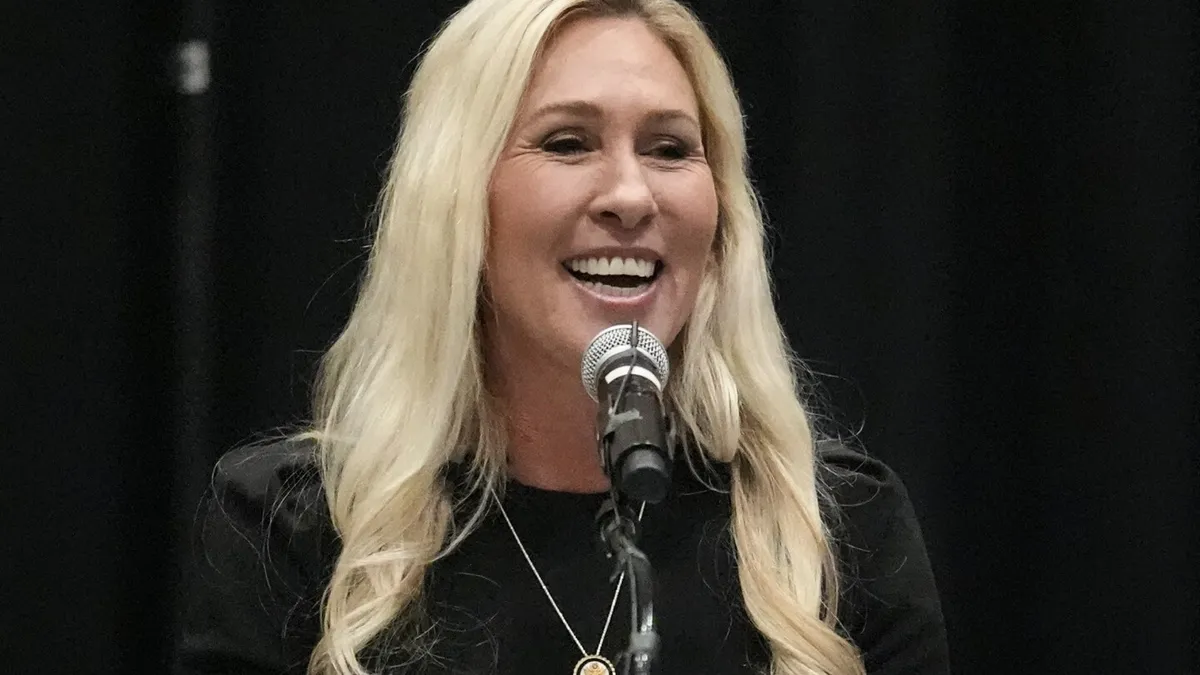
In a significant announcement on Friday, U.S. Representative Marjorie Taylor Greene confirmed that she will not challenge Democratic Senator Jon Ossoff in the upcoming midterm elections. This decision comes as a relief to many within the Republican Party who have expressed concerns over Greene’s divisive nature and its potential impact on her ability to win in a competitive race against Ossoff.
In a detailed post on the social media platform X, Greene addressed the apprehensions voiced by GOP donors and consultants regarding her electability. She countered their concerns, asserting that she does not wish to serve in a Senate that she believes is "dominated by lawmakers hostile to grassroots Trump supporters" and is resistant to meaningful change. “If I’m going to fight for a team, it will only be a team willing to lay it all on the line to save this country,” Greene stated, highlighting her commitment to her principles.
Senator Jon Ossoff, who is currently serving his first term, secured his seat by a narrow margin in a state that has traditionally leaned Republican but has recently emerged as a battleground. With Ossoff being a key target for Republicans aiming to expand their slim Senate majority, Greene’s decision not to run shifts the dynamics of the race.
Adding to the intrigue, popular Republican Governor Brian Kemp recently opted out of the 2026 Senate race, leaving the field wide open for potential GOP candidates. U.S. Representative Buddy Carter, who represents a coastal district in Georgia, has already declared his candidacy, becoming the first major Republican contender in the race.
Aside from Greene, six other Republican officeholders have shown interest in running for the Senate seat, including U.S. Representatives Mike Collins and Rich McCormick. Other candidates contemplating a run include Secretary of State Brad Raffensperger, State Agriculture Commissioner Tyler Harper, State Insurance Commissioner John King, and State Senator Greg Dolezal. Eric Tanenblatt, a prominent national GOP fundraiser and ally of Kemp, commented, “I expect a competitive primary—Senate seats don’t come along that often.”
Marjorie Taylor Greene is well-known nationally and has proven to be a prolific fundraiser. However, her political career has not been without controversy. She has embraced various conspiracy theories and engaged in public disputes with members of her own party. During a recent interaction with reporters, Greene highlighted her significant social media following, stating, “I have more than 11 million social media followers. People know where I stand.”
While Greene's popularity among a segment of the Republican base is undeniable, her decision not to run for the Senate came just a day after she indicated that she was contemplating a bid. “I’m going to give it some thought, talk to my family. I’m honored to have so much support from the great people of Georgia. And I have options,” she had stated previously.
Greene was first elected to the House in 2020, initially planning to run in a competitive district in the northern suburbs of Atlanta but later relocating to the more conservative 14th District in Georgia’s northwest corner. Despite facing backlash, including the removal of her committee assignments by a bipartisan vote in February 2021, Greene has continued to support individuals jailed following the January 6 Capitol riots, framing them as political prisoners.
Her controversial stance has drawn both allies and detractors within the Republican party. Greene was welcomed back into the GOP mainstream by House Speaker Kevin McCarthy, who formed an alliance with her. However, her contentious relationships with fellow Republicans have persisted, culminating in her expulsion from the House Freedom Caucus in 2023.
As the political landscape continues to evolve in Georgia, Greene's decision not to challenge Jon Ossoff marks a pivotal moment in the Republican strategy for the upcoming midterm elections.